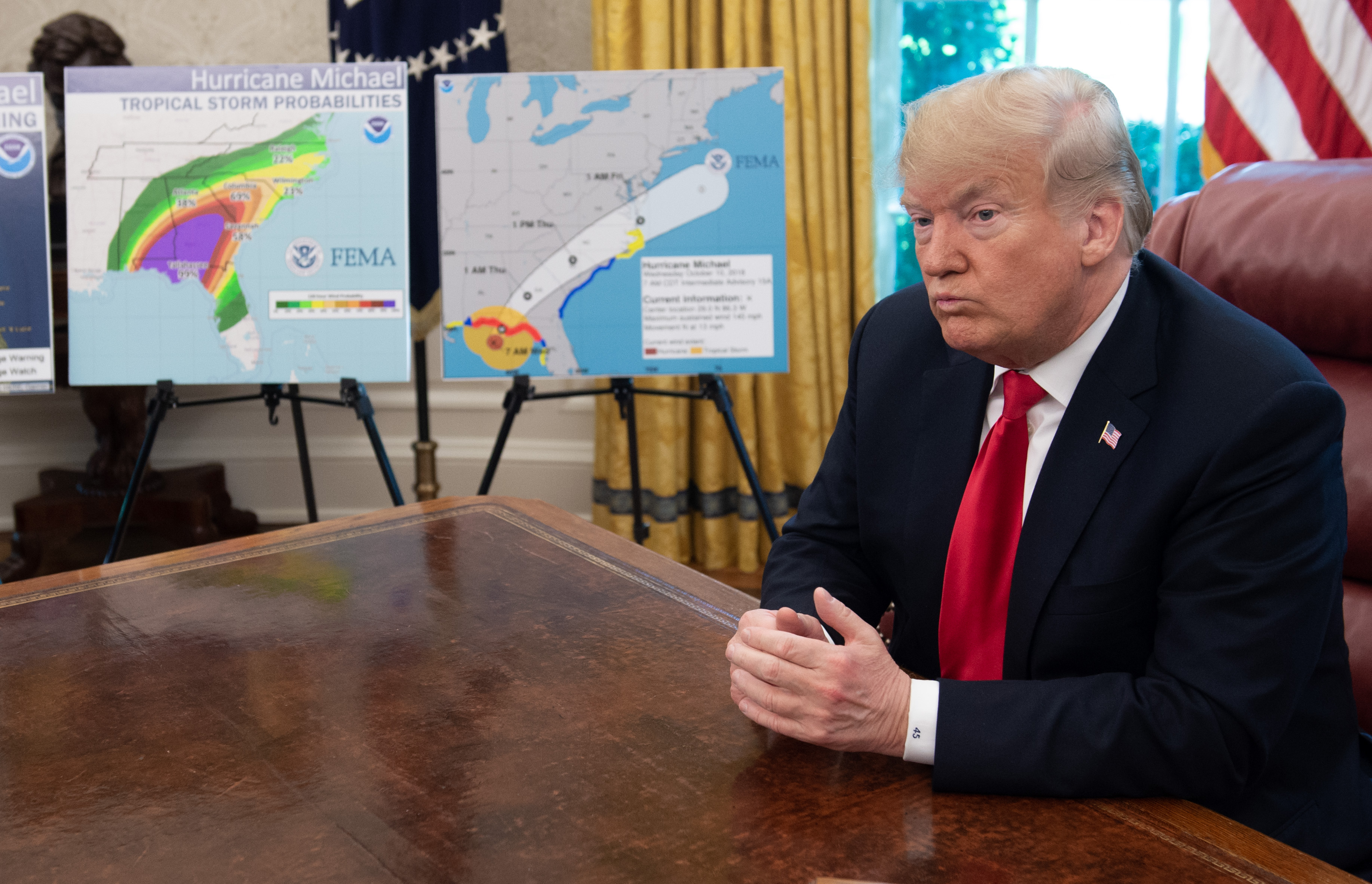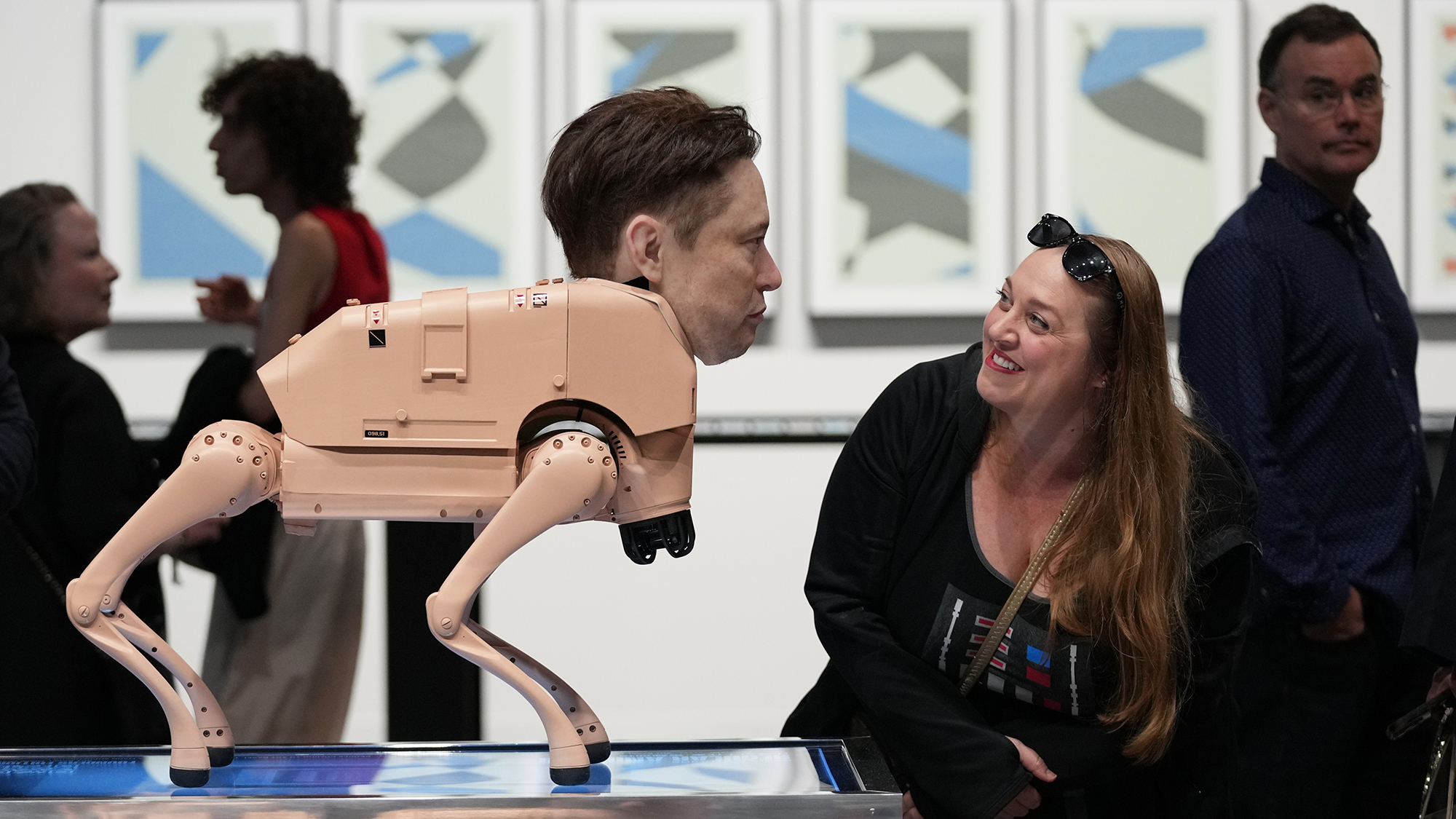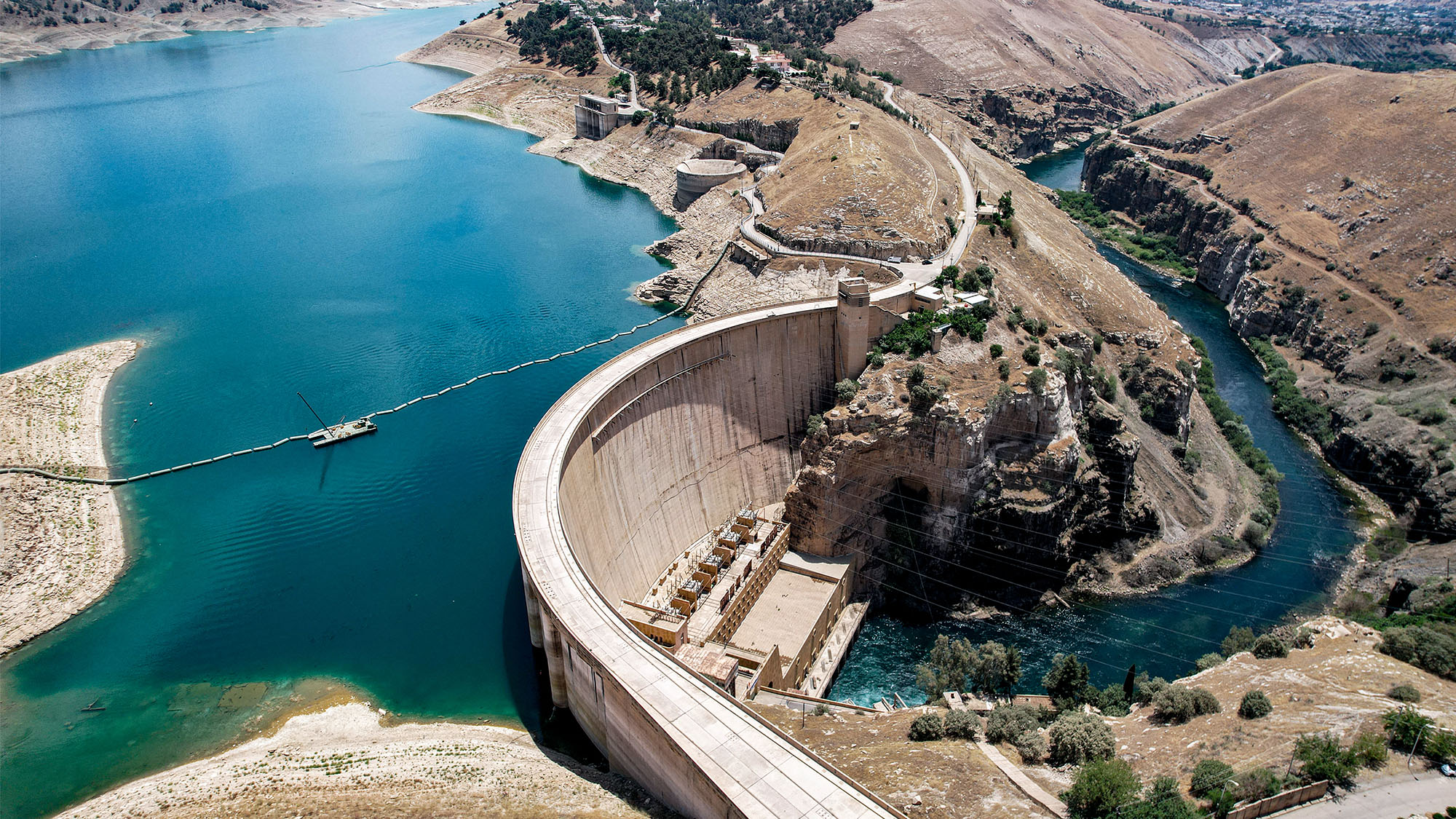Trump has already botched his Hurricane Michael response
The president is far more interested in being seen responding to the storm than in actually responding to it


A major weather emergency like Hurricane Michael should be a great opportunity for President Trump to shine. After all, nothing makes a president look more presidential than receiving an on-camera briefing from emergency officials — it's a chance to furrow one's brow and demonstrate command even in the face of chaos. If bombing other countries is the best way to "become president" in the eyes of the public, merely appearing competent during the nation's dire moments is probably a close second.
So naturally, Trump failed the test again this week.
When hurricanes strike, we should think about the people most directly affected: the residents in the path of the storm, the first responders and utility crews that will rescue endangered citizens and begin the arduous task of restoring services as the storm passes. In these moments, presidents should be seen — indeed, we demand it of them — but not really heard.
The Week
Escape your echo chamber. Get the facts behind the news, plus analysis from multiple perspectives.

Sign up for The Week's Free Newsletters
From our morning news briefing to a weekly Good News Newsletter, get the best of The Week delivered directly to your inbox.
From our morning news briefing to a weekly Good News Newsletter, get the best of The Week delivered directly to your inbox.
Remember "Heckuva job, Brownie?" Former President George W. Bush infamously muttered those words to former FEMA chief Michael Brown as they surveyed the destruction left by Hurricane Katrina. Of course, the federal response to Katrina was far from sufficient, and Brown resigned in disgrace shortly thereafter. The "heckuva job" line is probably the most (and perhaps the only) well-known hurricane-related presidential quote, and it's not one a smart president wants to top. But on Wednesday, Trump gave it his best shot during a Hurricane Michael briefing in the Oval Office.
"It's like a big tornado, a massive tornado," Trump warned reporters.
As silly as that comment sounds, it isn't entirely wrong. Nevertheless, the moment immediately entered internet lore. But the biggest problem with the briefing was that the president was once again making a national crisis about him, using it as a chance to prove to the world that he has a "very, very large brain." Trump needs to be seen, and he'll use any and every opportunity made available to him, no matter how inappropriate it may seem.
As with many of our political problems, this isn't entirely Trump's fault. But he is certainly making a bad thing worse.
A free daily email with the biggest news stories of the day – and the best features from TheWeek.com
Hurricanes are political events. This is legitimate: People expect their government to come to their aid in a natural disaster. But it may also be a bit unfair: A big storm can spread destruction, flooding, and death for hundreds of miles in every direction. Even the best-managed hurricanes are a huge challenge to the officials in charge, and it is horrifically easy for the government to fall short of expectations.
The list of criticisms of Bush's handling of Hurricane Katrina has been extensively litigated in public during the 13 years since; the most important point, for our purposes, is that Bush's presidency — already hobbled by a faltering effort in Iraq — never really recovered.
The result? When hurricanes happen now, the White House and its occupants know the whole world is watching. The presidency has long been adjunct to the television industry, and that only becomes more true during times of crisis: John F. Kennedy beat Richard Nixon in the 1960 election, in part because he was more telegenic than Nixon during history's first televised debates. Ronald Reagan, who made his name in movies and then on TV, brought a well-honed sense of stagecraft to the Oval Office. Even Barack Obama, supposedly above it all, knew the value of a well-placed cameo on late-night television. In some ways, Trump is merely heir to the ongoing showbizification of the White House.
Those men might have been every bit as narcissistic as Trump — you don't run for president because you lack self-regard. But they mostly used their ability to manage pop culture to serve or at least convey a larger vision. To the contrary, Trump seems to think it is the performance that matters most, that the point of being on TV is to be on TV. He's not really playing at being the president; he's playing at being himself playing at being the president. The effect is something like looking at a copy of a copy of a copy.
The results of this approach were most evident in Puerto Rico after Hurricane Maria. Trump was more interested in being seen responding to the storm than in actually responding to the storm. Thus, he made himself more ridiculous, tossing paper towels at survivors even as the death toll began to rise and rise and rise on the island. Since then, the president has apparently spent more energy battling critics of his storm response than he has improving his government's response to it.
We can expect more of the same, if not after Hurricane Michael, than after the next big storm. Our need for good government will only become more urgent with every increasingly devastating, climate-fueled disaster. Our realistic expectations of the person leading that government, however, have never been lower.
Joel Mathis is a writer with 30 years of newspaper and online journalism experience. His work also regularly appears in National Geographic and The Kansas City Star. His awards include best online commentary at the Online News Association and (twice) at the City and Regional Magazine Association.
-
 The week’s best photos
The week’s best photosIn Pictures A drive in the desert, prayers with pigeons, and more
-
 The Week Unwrapped: Will drought fuel global violence?
The Week Unwrapped: Will drought fuel global violence?Podcast Plus why did Trump pardon a drug-trafficking president? And are romantic comedies in terminal decline?
-
 Sudoku hard: December 5, 2025
Sudoku hard: December 5, 2025The daily hard sudoku puzzle from The Week
-
 Has Zohran Mamdani shown the Democrats how to win again?
Has Zohran Mamdani shown the Democrats how to win again?Today’s Big Question New York City mayoral election touted as victory for left-wing populists but moderate centrist wins elsewhere present more complex path for Democratic Party
-
 Millions turn out for anti-Trump ‘No Kings’ rallies
Millions turn out for anti-Trump ‘No Kings’ ralliesSpeed Read An estimated 7 million people participated, 2 million more than at the first ‘No Kings’ protest in June
-
 Ghislaine Maxwell: angling for a Trump pardon
Ghislaine Maxwell: angling for a Trump pardonTalking Point Convicted sex trafficker's testimony could shed new light on president's links to Jeffrey Epstein
-
 The last words and final moments of 40 presidents
The last words and final moments of 40 presidentsThe Explainer Some are eloquent quotes worthy of the holders of the highest office in the nation, and others... aren't
-
 The JFK files: the truth at last?
The JFK files: the truth at last?In The Spotlight More than 64,000 previously classified documents relating the 1963 assassination of John F. Kennedy have been released by the Trump administration
-
 'Seriously, not literally': how should the world take Donald Trump?
'Seriously, not literally': how should the world take Donald Trump?Today's big question White House rhetoric and reality look likely to become increasingly blurred
-
 Will Trump's 'madman' strategy pay off?
Will Trump's 'madman' strategy pay off?Today's Big Question Incoming US president likes to seem unpredictable but, this time round, world leaders could be wise to his playbook
-
 Democrats vs. Republicans: who are US billionaires backing?
Democrats vs. Republicans: who are US billionaires backing?The Explainer Younger tech titans join 'boys' club throwing money and support' behind President Trump, while older plutocrats quietly rebuke new administration
